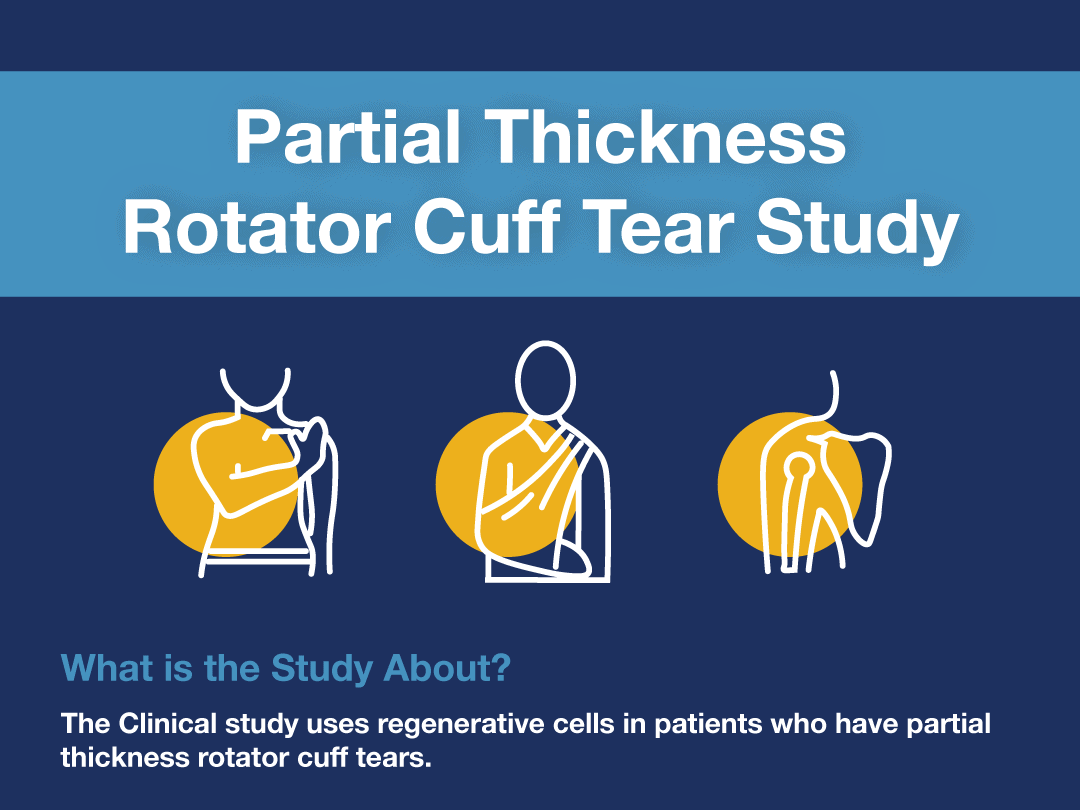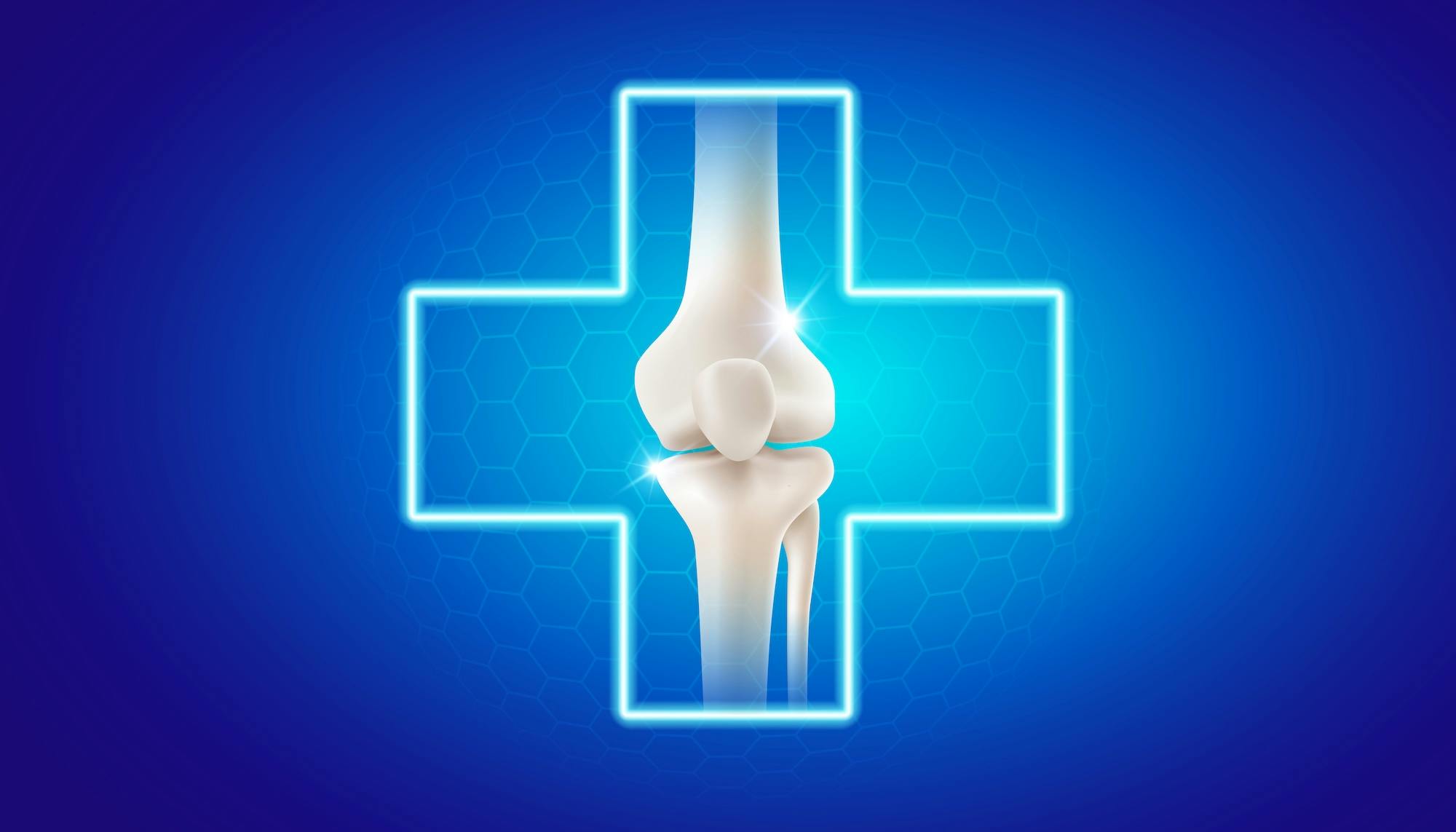- Blog
Partial Thickness Rotator Cuff Tear Study
Posted on 04-16-2025 in Primary Care Sports Medicine, Regenerative Medicine & Rotator Cuff by Dr. Joshua Hackel

Posted on 04-16-2025 in Primary Care Sports Medicine, Regenerative Medicine & Rotator Cuff by Dr. Joshua Hackel
In partnership with the Andrews Research & Education Foundation, I am serving as the Principal Investigator on a clinical study involving the use of regenerative cells in patients who have partial-thickness rotator cuff tears. These are tears in the tendon that contribute to shoulder pain, dysfunction, and occupational disability. The use of regenerative stem cells is investigational. In this study, regenerative cells from your fat tissue will be isolated, concentrated, and injected into your tendon tear.
The trial will evaluate the safety and effectiveness of using these cells to treat patients’ injuries compared to a steroid injection. The study is sponsored by lnGeneron, Inc., a cell therapy company developing regenerative medicine therapies for musculoskeletal diseases. Please continue reading to learn more about the study. If you have additional questions or are interested in being a potential candidate for the trial, please call 850-916-8584.
What are regenerative cells?
Regenerative cells are a mixture of stem and progenitor cells as well as different immune cells (i.e., white blood cells). These cells can be found in a person’s body fat and harvested through liposuction and processing procedure. Earlier studies suggest that these cells can be used to stimulate repair and regeneration of damaged tissue.
What can I expect if I join the study?
After signing a consent form, you will undergo radiology and lab testing to confirm your diagnosis and ensure it’s safe for you to participate in the study. Once you pass the screening tests, you will be randomly enrolled in either the treatment or control group.
You won’t know which group you are enrolled in. This is to make sure your answers to any questions during your follow up visits are not influenced by the type of treatment you were given. Your chance of being placed in the treatment group is approximately 66%. Participants in both groups will receive a liposuction procedure of approximately half a cup of fat tissue (about 100 milliliters) taken from their abdomen, trunk, or thigh using a standard liposuction technique.
The fat tissue of a person in the treatment group will be processed using an enzyme, which isolates and concentrates regenerative cells located in the tissue. Those cells are then injected into the site of the injury. Patients in the control group will undergo a liposuction procedure and receive a standard steroid injection. Independent of the group you are enrolled in, you’ll be able to return home after the injection is complete. All procedures will take place on the same day and take approximately six hours total.
How many follow-up visits are there?
Following the procedure day, you’ll have six follow-up visits with the physician who performed the procedure – at 2 weeks, 6 weeks, 12 weeks, 24 weeks, 36 weeks, and 48 weeks after the procedure. These visits will include a physical exam, questions about your health history and medications, surveys, lab testing (at the 2 week and 48 week visits) and radiographic exams (at the 24 and 48 week visits).
Who is eligible for the study?
Male and female patients between 30 and 75 years old who both demonstrate clinical symptoms of a partial-thickness rotator cuff tear and who are diagnosed with partial-thickness rotator cuff tears by an MRI are eligible to participate in the trial. The study team will review with you a detailed list of criteria that’s necessary to be included in the study and discuss your eligibility.
What are the potential benefits of participation?
Benefits to your participation are not guaranteed, but you could potentially see improved function and decreased pain in your injured rotator cuff, which could improve your overall quality of life.
What are the potential risks?
There are potential risks for participation in this study. For example, the liposuction procedure may result in temporary bruising or soreness. A full list of risks will be reviewed with you by the study team.

March is National Nutrition Month®, and as part of the conversation, the North Florida Bone & Joint team wants to emphasize the impact diet can have on your bone health. Before diving in, it's essential to understand the role the skeleton plays in your body. Specifically, the skeleton—and the bones its comprised of—serve the following functions:

At North Florida Bone & Joint Specialists, we’re committed to delivering convenient, expert care throughout the Gulf Coast. As part of that commitment, we’re excited to announce the expansion of our clinical office footprint. In March, we opened two new locations in Milton and Navarre, FL, further enhancing our ability to serve patients across Northwest Florida.

Valentine’s Day is all about love—so why not show your joints some love, too? Whether you’re an athlete, an active adult, or simply looking to maintain mobility as you age, taking care of your joints is essential for long-term health and well-being. At North Florida Bone & Joint Specialists, we believe that self-care isn’t just about relaxation—it’s about making intentional choices to keep your body strong, pain-free, and resilient. Here are four self-care tips to keep your joints healthy and moving with ease: